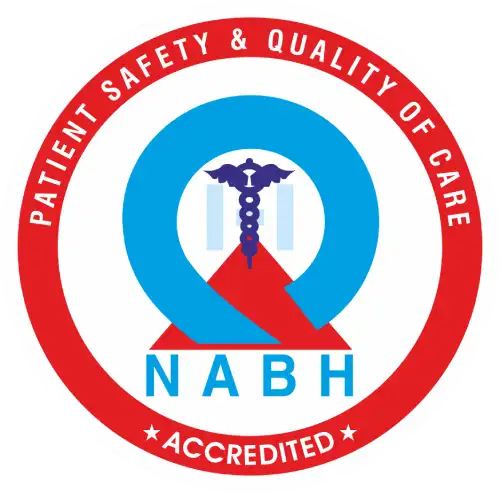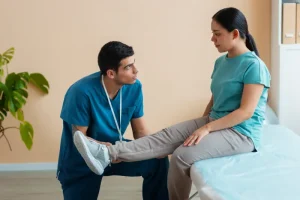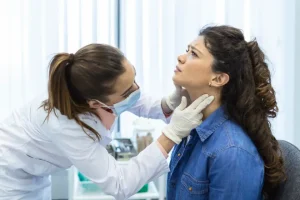Stroke & Early Interventions: What is a Brain Attack?
A brain attack, also known as a stroke, is a medical emergency that occurs when the blood supply to a part of the brain is disrupted or blocked. This interruption…
By Aadicura | 11 March 2023A brain attack, also known as a stroke, is a medical emergency that occurs when the blood supply to a part of the brain is disrupted or blocked. This interruption of blood flow can cause brain cells to die or become damaged, resulting in a range of physical, cognitive, and emotional symptoms.
There are two main types of strokes: Ischemic stroke and hemorrhagic stroke. Ischemic stroke occurs when a blood clot blocks one of the arteries supplying blood to the brain, while hemorrhagic stroke occurs when a blood vessel in the brain ruptures, causing bleeding.
Stroke is a leading cause of disability and death worldwide, affecting millions of people each year. The risk factors for stroke include high blood pressure, smoking, obesity, diabetes, and heart disease. Age, gender, and family history also play a role in determining a person’s risk.
The symptoms of a stroke can vary depending on the severity and location of the damage. Common symptoms of stroke include sudden weakness or numbness on one side of the body, slurred speech or difficulty speaking, blurred vision, and confusion or disorientation. Other symptoms may include severe headaches, dizziness, and loss of balance or coordination.
As recommended by our Best Neurosurgeons in Vadodara at Aadicura Superspeciality Hospital, it is essential to seek medical attention immediately if you suspect that someone is having a stroke. The faster a stroke is diagnosed and treated, the better the chances of recovery. Treatment for stroke typically involves medications to dissolve blood clots, surgery to repair damaged blood vessels, and rehabilitation to help individuals regain lost function.
Prevention is also key in reducing the risk of stroke. Making lifestyle changes such as quitting smoking, eating a healthy diet, exercising regularly, and managing underlying health conditions can all help reduce the risk of stroke. Additionally, regular check-ups with the best brain specialists in Vadodara can help identify and manage risk factors before they lead to a stroke.
Therefore brain attack, or stroke, is a serious medical emergency that can have lasting effects on a person’s health and well-being. Understanding the risk factors for stroke, recognizing the symptoms, and seeking prompt medical attention are all essential in improving outcomes for those affected by stroke. Taking steps to prevent stroke through lifestyle changes and regular medical care can also help reduce the risk of this debilitating condition
What is a Stroke?
Stroke is a very serious condition which requires immediate medical attention. The quicker a person with a stroke receives medical care, the better their chances of recovery. Early interventions can make a significant difference in reducing the extent of damage caused by a stroke and increasing the chances of a good outcome. Aadicura Superspeciality Hospital, considered as one of the best brain hospital in Vadodara, recommends consulting the Neurosurgery department to get immediate care.
Here are some of the early interventions that can help improve outcomes after a stroke include:
- Activating emergency medical services (EMS): If someone is showing signs of stroke, such as sudden weakness or numbness in the face, arm, or leg, especially on one side of the body, sudden confusion or difficulty speaking, sudden vision changes, sudden trouble walking or loss of balance, or a severe headache, it is important to call emergency medical services immediately. EMS personnel can provide early assessment and management, as well as transport the person to the hospital with the best brain surgeons in Vadodara.
- Rapid assessment and diagnosis: Once the person arrives at the hospital, they will be assessed and diagnosed as quickly as possible. A CT scan or MRI may be performed to determine the type of stroke and its severity.
- Thrombolysis: If the stroke is caused by a blood clot, thrombolysis may be administered within the first few hours of symptom onset. Thrombolysis is a medication that can dissolve the blood clot and restore blood flow to the brain.
- Mechanical thrombectomy: If the blood clot is too large or cannot be dissolved by thrombolysis, mechanical thrombectomy may be performed. This involves the removal of the clot through a catheter inserted into an artery in the groin and threaded up to the blocked vessel in the brain.
- Stroke unit care: After diagnosis and treatment, the person with stroke is usually admitted to a stroke unit for specialized care. Stroke unit care can help prevent complications, improve recovery, and reduce the risk of future strokes.
- Rehabilitation: Rehabilitation is an essential component of stroke care. Physical, occupational, and speech therapy can help the person recover lost function and improve quality of life.
ALSO READ: Head & Spine Trauma
What is a brain attack called?
A brain attack is also commonly known as a stroke. The term “brain attack” is often used to emphasize the urgency and seriousness of the condition, similar to how a heart attack is used to describe a serious cardiac event. Other terms for a stroke include cerebrovascular accident (CVA) and apoplexy. A good brain surgeon in Vadodara is the best medical professional to provide the expert level of treatment.
How do you recover from a brain attack?
Recovery from a brain attack, also known as a stroke, depends on the severity and location of the brain damage and the extent of disability resulting from the stroke. Recovery can be a slow and gradual process that can take months or even years. Rehabilitation is an important part of the recovery process, which typically involves the following:
- Physical therapy
- Occupational therapy
- Speech therapy
- Cognitive therapy
- Emotional support
Why do we refer to strokes as brain attacks?
The term “brain attack” is used to refer to strokes because it emphasizes the sudden and serious nature of the condition. Stroke is a medical emergency that requires urgent attention, similar to a heart attack, which is also referred to as a “cardiac attack.”








